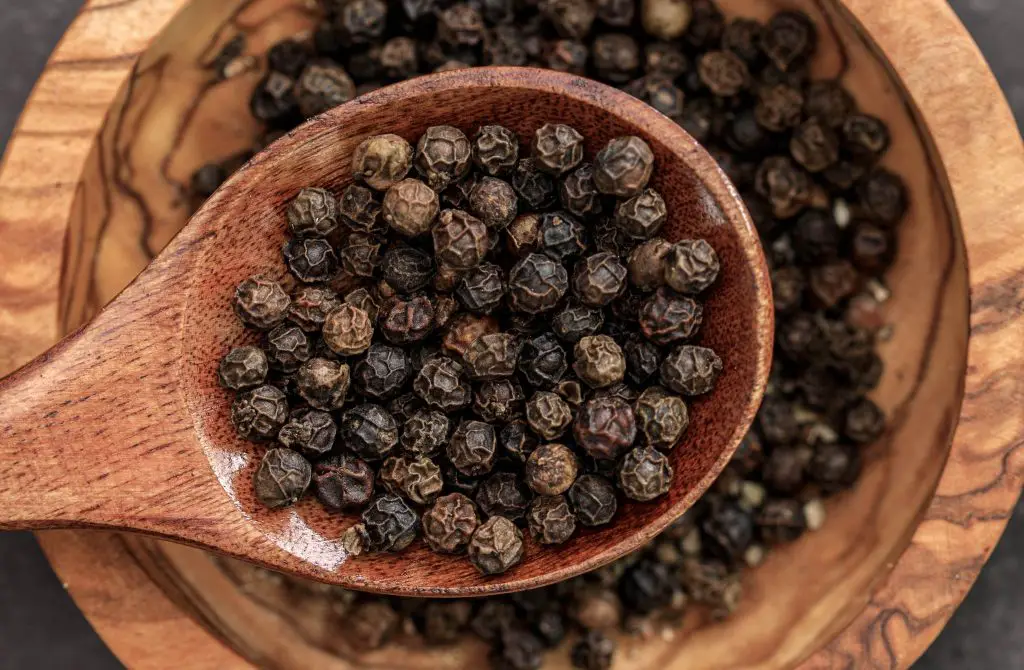
Peppers are in everything we eat. It adds a lot of flavor and spice to our food. Even as we enjoy the taste, we can’t help but wonder if our cats can eat it as well. Black pepper is toxic to cats. Like other condiments, black pepper harms your cat’s health. The scent of black pepper can be unpleasant if inhaled in excessive quantities. It may make humans sneeze; imagine how much worse it is for our feline friends, who have heightened senses of smell.
Do cats like black pepper?
Cats do not just like black pepper. They don’t like it more than anything else. This is because our cats don’t like the smell of black pepper. Therefore, people who want to keep cats out of a particular area are known to use black pepper as a repellent.
Moreover, cats don’t like the smell of black pepper. It gets into their nasal passages and makes them sneeze. If it gets worse, it can also create their eyes feel irritated.
Can cats eat black pepper?
Like other kinds of pepper, black pepper has a strong smell that cats don’t like. But it’s okay if your cat eats food that tastes like black pepper. So don’t worry if you give your cat a little bit of pepper to eat. But giving your cat a lot of black pepper is bad for its health. Black pepper has smells that can be unpleasant if you take in too much of it. People can get sneezing from it, so think about how much worse it is for our cats, who have better senses of smell.
So, cats can eat a tiny amount of black pepper. This means you should be careful with how much pepper you put in your cat’s food.
Can black pepper kill cats?
Black pepper can be bad for cats in the long run. It contains terpenes and essential oils, which are harmful to cats if they eat them directly. It could affect the kidneys of your cat. Cats don’t have a high level of toxicity when it comes to black pepper. Your cat might not like it because it is bitter.
We don’t see the value in giving black pepper to cats because they don’t need those nutrients. Adding black pepper to your cat’s food would likely ruin the flavor. However, watch your cat closely for the next several hours if you think he may have eaten any black pepper. It’s reasonable to assume that your cat wasn’t poisoned if it hasn’t displayed any poisoning symptoms after 24 hours.
Effects of black pepper on cats
Although cats dislike the strong aroma of black pepper, it is not harmful to them. The following are some potential effects of black pepper on your cat.
Smell
First, black pepper has a strong smell, especially to cats. A cat’s nasal passages become irritated by piperine, the chemical in pepper that gives it many health benefits. If your cat breathes in enough black pepper, it might start to sneeze. Cats use their noses as much as their mouths to make them hungry. Something that bothers the nose won’t be very appealing to them.
Natural repellant
The odor of black pepper is so unpleasant to cats and other animals that it is regularly used in natural pesticides. As a result, black pepper-seasoned dishes may be undesirable to your feline buddy.
Irritate stomach
Only a tiny portion of the spiciness in chilies or other pepper types is found in black pepper. However, if taken in sufficient amounts, it might still cause your cat’s stomach pain. Cats who consume a lot of black pepper may get diarrhea, vomiting, and stomach pain. But these symptoms are usually minimal and disappear quickly. Consult a vet if your cat’s symptoms last longer than 48 hours after eating black pepper.
Do cats hate how black pepper smells?
Cats don’t like the strong smell of black pepper. They are curious animals that like to smell everything, including other animals, things, and food. So, they want to smell everything they find when they move around or roam. If black pepper is up in a particular place, the cat might scratch its nose and run away. When the smell of black pepper bothers them, their instincts teach them how to find it.
People usually put ground black pepper in places they don’t want their cats to go because of this. After smelling black pepper, they would never go near it again. Aside from the smell, black pepper ingestion may harm a cat’s stomach. Black pepper is spicy, whether whole, cracked, or crushed. Because of its fiery nature, it may cause stomach issues. Such problems in cats include vomiting, diarrhea, and stomach distress.
Can cats eat cracked black pepper?
No research exists to determine whether cracked black pepper is safe or dangerous for cats. We can tell you that cats don’t like pepper smell and probably won’t eat this spice or food. Cracked black pepper is a pesticide ingredient that prevents animals such as dogs, cats, groundhogs, and squirrels. The fact that it is used as a repellent shows that these animals hate the smell. However, there are substances in black pepper that are harmful to cats.
Spices that are toxic to cats
Here is a list of spices that are harmful to cats.
Spices |
Effects on cat |
Black pepper |
Kidney damage and poisoning |
Garlic |
Damage to the red blood cells and anemia |
Onions |
Damage to the red blood cells and anemia |
Shallots |
Damage to the red blood cells and anemia |
Scallions |
Damage to the red blood cells and anemia |
Conclusion
Nevertheless, using black pepper as a repellent may be beneficial but also detrimental. Therefore, using such a way to keep your pet away from a specific place is not recommended. If necessary, train them, but don’t harm them by pepper-spraying them. Additionally, avoid feeding food that contains black pepper.
FAQs
Can cats eat meat with black pepper?
Black pepper should not be included in cat diets. Several cats find black pepper unpleasant, and those who do not change their minds will avoid it. You may want to avoid cooking it with pepper if you plan to cook for your pet.
Can cats eat white pepper?
It’s fine if you only feed your cat white pepper on occasion. However, feeding white pepper to your cat regularly may be harmful to your cat’s health. Excessive consumption of white pepper may worsen gastrointestinal issues in cats.


